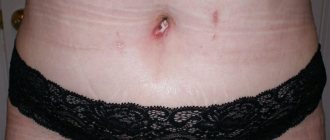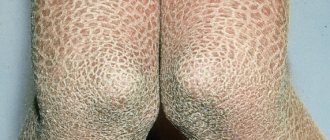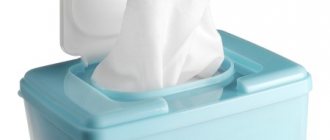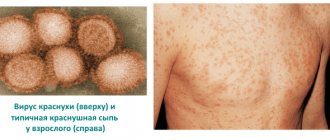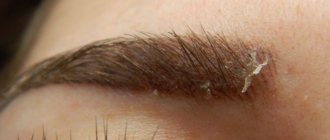No matter where the itching occurs, it causes irritation and brings a lot of awkward moments. It’s okay if your hand or nose itches! But when itching occurs in the bikini area, it can be quite unpleasant.
Girls and women of all ages face burning and discomfort in the intimate area. In addition, representatives of the fair sex may be bothered by redness and swelling of the mucous membrane.
The listed symptoms can significantly reduce the quality of life, since they not only interfere with work and rest, but also make normal sex life impossible.
What can cause vaginal itching?
Vaginal itching itself is not a disease, but just a signal from the body that you should pay attention to. But we will describe below what conditions or diseases most often cause itching in the intimate area.
Bacterial vaginosis
It is normal to have bacteria in the vagina. But in some cases they become the cause of infection. Besides itching, there are other symptoms of bacterial vaginosis:
- inflammation;
- burning;
- copious vaginal discharge;
- unpleasant smell.
Vaginal candidiasis (thrush)
About three out of four women will experience a yeast infection at least once in their lives. This occurs when candida yeast begins to overgrow in the vagina and vulva.
Pregnancy, frequent sexual intercourse, antibiotics, and a weakened immune system increase your chances of getting a yeast infection. In addition to itching and irritation, candidiasis is accompanied by profuse, thick, white discharge.
Sexually transmitted diseases (STDs)
Chlamydia, genital herpes, trichomoniasis, gonorrhea, and genital warts can cause vaginal/vulvar itching, irritation, and other symptoms.
Menopause
The decline in estrogen production that occurs late in a woman's reproductive years can cause the vaginal walls to become thin and dry. This condition can cause itching and irritation. Drying of the vaginal walls can also occur in breastfeeding women.
Chemical irritants
A number of chemicals found in creams, deodorants, lubricants, birth control and detergents, soaps and scented toilet paper can irritate the mucous membranes of the vagina and vulva.
This itching usually goes away after the woman stops using these products.
Diet features
At first glance, the desire for a slim figure has nothing to do with discomfort in the genital area.
But in fact, an unbalanced diet, a lack of vitamins and beneficial microelements may well cause itching and burning in the vagina.
Semi-finished and instant products with large amounts of preservatives, flavor enhancers and dyes also negatively affect the microflora of the genital organs.
Other causes of vaginal itching
- low estrogen levels at any age;
- foreign objects in the vagina (for example, a forgotten tampon);
- intrauterine device;
- certain medications (antibiotics and steroids);
- wet or tight underwear;
- hypothermia;
- some skin diseases (for example, desquamative vaginitis, lichen);
- diabetes;
- cystitis;
- urinary incontinence;
- gastrointestinal diseases;
- parasitic diseases (for example, pinworms);
- dystrophic changes in the mucous membrane of the vagina and vulva;
- prolapse of the internal genital organs;
- cervical or vaginal cancer.
Remember that the correct diagnosis must be made exclusively by a doctor! The only correct solution if any discomfort appears “there” would be a visit to a specialist.
Natural causes
If the discomfort is not eliminated in time, the itching will intensify. Due to strong scratching, wounds will appear on the surface of the thin, delicate skin of the mammary glands, through which infection can penetrate. This will lead to the development of an inflammatory process. Therefore, it is important to correctly recognize the cause of itching at the first manifestations of itching.
This phenomenon can be provoked by natural factors. More often it is caused by increased dry skin or irritation of the mammary glands. In addition, such discomfort is often observed after visiting a solarium, since UV rays dry out delicate skin, causing it to peel and itch.
Natural causes of irritation of the skin of the mammary glands include stress. When a woman experiences nervous tension, the level of histamine in her body increases and blood vessels narrow. At the same time, the activity of the adrenal glands and the production of hormones that have antiallergic and anti-inflammatory effects decrease. Relief occurs only after the woman calms down. With chronic stress, you constantly feel itching in the nipple area.
Skin irritation
The problem occurs if the underwear is too tight and made of synthetic material. The situation is aggravated in the hot season or with hyperhidrosis: diaper rash, inflammation and itching occur.
Irritation may also appear after a mosquito or other insect bite. Usually swelling appears around such a wound. Severe itching occurs in this area. When scratching the bite, the wound enlarges. The danger is that infection can occur through it.
Dry skin
More often, this problem occurs when the water balance in the body is disturbed. In addition, its development can be provoked by the following factors:
- Soap with a high pH content is used for washing.
- When caring for the body, cosmetics that contain alcohol are used.
Dry skin can be caused by poor diet. The presence of smoked meats, sweets and spicy foods in the diet, as well as excessive consumption of alcoholic beverages, negatively affects the condition of the entire body. First of all, the skin suffers: it becomes tight, dry and begins to peel.
Allergy
When itching in the vagina and the skin next to it, you should pay attention to the cosmetic products (shower gels, shampoos, soaps) that you use. The cause of itching may be:
- Intimate hygiene products. The ingredients in these products may cause irritation. Choose products for water procedures without SLS (sodium lauryl sulfate) in the composition. Use hypoallergenic baby oil and body milk, make compresses with mint infusion. It is better to use tampons, pads, and toilet paper without fragrances.
- Sex attributes. To avoid consequences in the form of itching in the vagina, you need to be interested in what materials the purchased goods are made of. Consult your gynecologist about the choice of condoms and sex toys.
Hormonal changes
Itching in the area around the nipple can be caused by changes in estrogen levels. This happens at different stages of life:
- in adolescence during puberty;
- during pregnancy, when a woman’s body is preparing for childbirth;
- before menstruation;
- with menopause and hormonal imbalance.
Itching in the mammary glands also occurs when taking oral contraceptives. Estrogens affect the functioning of the sebaceous glands: the skin around the nipple becomes dry and tends to peel.
Adolescence
Discomfort during puberty is a natural phenomenon. At this stage of life, a girl’s body actively produces estrogens. These hormones are responsible for the growth of mammary gland cells, the number of ducts in them and the rapid growth of stromal tissue. Progesterone is very important. It inhibits the proliferation of tissues that form the breast.
Since a teenager’s mammary glands grow rapidly under the influence of hormones, the skin in this area of the body stretches. This process is accompanied by itching.
Period
Discomfort in the chest area may be associated with the menstrual cycle. In the middle of the cycle, the female body actively produces estrogens - hormones responsible for fertilization and the normal course of pregnancy. Under the influence of these biologically active substances, the condition of the uterus changes: the endometrium grows, which is necessary for the successful implantation of a fertilized egg.
An increase in estrogen levels also affects the condition of the mammary glands. Under the influence of such hormones, adipose tissue grows, so before menstruation, breasts increase in size. In addition, the sensitivity of the nipples increases: they swell and itch.
Pregnancy and lactation
From the first days after fertilization, a woman’s body undergoes serious physiological changes. It must provide all the necessary conditions for the growth of the embryo, the development of the fetus, and the subsequent birth and feeding of the baby. A normal pregnancy is accompanied by itchy breasts. In most cases, this is not a cause for concern, but sometimes specialist intervention is required.
A pregnant woman's breasts itch for the following reasons:
- due to hormonal changes, the mammary glands enlarge (the skin stretches and this causes an itching sensation);
- wearing compressive synthetic underwear with underwires, which impairs blood circulation;
- hyperhidrosis, triggered by changes in hormonal levels, causes redness of the skin and severe itching;
- exposure to allergens;
- fungal skin infection;
- the production of colostrum and the movement of this secretion through the expanding ducts of the breast is accompanied by tingling and mild itching.
The mammary glands also itch during lactation. More often, itching is provoked by a physiological reason: due to milk production, the breasts swell, the skin stretches and begins to itch.
However, there are also pathological reasons that provoke these unpleasant sensations. If a woman is bothered by itching of the mammary glands for a long time while breastfeeding, the problem may be caused by the following pathologies:
- mastitis;
- fungal infection of the skin of the peripapillary area;
- deficiency of vitamins A, C, D, E, the trace element zinc and Omega-3 fatty acids.
The problem also arises when the technique of attaching the baby to the breast is violated. If during feeding the baby only grasps the nipple, cracks and microtraumas may appear on it. This pathological process is accompanied by itching and pain.
Menopause and hormonal disorders
Both during menopause and with hormonal imbalance, the level of estrogen in the body decreases. This hormone is responsible not only for women’s health, but also for the condition of the skin. Since it stimulates collagen production and is responsible for skin hydration, when it decreases, it becomes dry and thin. Such changes are accompanied by itching.
The severity of this discomfort can vary from mild to severe. In the first case, there is a slight itching, which is often accompanied by tingling or a crawling sensation. With severe manifestations, the breasts become very itchy, which causes sleep disturbance and affects the woman’s daily life activities.
The left and right papilla of a man itches
Especially for men, such signs can become harbingers of serious diseases. Whether a man's right or left papilla itches doesn't matter. If it's not a normal allergy, go to the hospital right away. Here are just a few diseases:
- infectious and hormonal diseases, Mondor's disease, diseases of the testicles, pituitary gland, adrenal glands, liver, trauma and breast growth.
- Breast cancer is the most compelling of all possible reasons why the left or right nipple itches in men.
Diseases as a cause of itching
The chest also itches due to skin diseases. Itching is usually observed with urticaria, eczema and fungal skin infections. In addition, this uncomfortable sensation may indicate serious pathologies occurring in the body. This can be judged if the following symptoms are observed simultaneously with the itching:
- yellow or green discharge from the milk ducts is observed with ductectasia;
- secretion mixed with blood is a sign of papillomas or cystic formations.
Breast itching can also occur during an inflammatory process caused by the penetration of bacteria or infections into the glandular tissue. A particular example of this is infection by Staphylococcus aureus. However, even with a strong immune system that protects a woman from infection, a pathogenic microorganism can settle on the skin of the breast and parasitize here for a long period. All this time, the skin of the chest will be very itchy.
Allergy
A common cause of itching is contact dermatitis. An allergic reaction is usually caused by the following irritants:
- synthetic fabric of underwear;
- cosmetics used for body care;
- perfumery;
- residues of detergents used for washing clothes;
- jewelry made from material that provokes an allergic reaction in a woman.
In addition, itching in the peripapillary area is often provoked by food allergies. When consuming an irritating product, the mammary glands swell, itch, and even begin to ache.
Eczema
This inflammatory disease is accompanied by redness of the skin, burning, itching and peeling. Eczema can affect the décolleté, the area under the breasts, and even the nipples. More often it occurs due to metabolic disorders or after injury to the skin. Nervous fatigue and excessive stress can provoke the development of this inflammatory process. Eczema can also be caused by exposure to an irritant, for example, through contact with synthetic or woolen items.
Paget's disease
This is an aggressive breast disease. It affects the nipple area and develops in glandular cells. Among the nonspecific signs of this disease, the following symptoms can be identified: increased sensitivity of the skin, redness of the area around the nipple, itching and tingling. In some cases, a small amount of serous matter appears on the affected area.
Nonspecific diseases that also cause itching in the perineum
Not only gynecological ailments can cause unpleasant symptoms in the genital area. There are a number of diseases that, at first glance, are completely unrelated to the intimate area, which, nevertheless, can cause itching.
1. State of chronic stress, nervous disorders, psychosis, depression.
2. Endocrine disorders.
3. Diabetes mellitus.
4. Urolithiasis, cystitis (they change the composition of urine, making it aggressive, capable of irritating the ureters and mucous membranes).
5. Fungal infections located in different folds of human skin.
Treatment options
The choice of drug therapy directly depends on the cause of the itching. Therefore, all appointments are made only after examining the patient.
Lost time only makes the situation worse!
If the itching is caused by an infection, Beloderm, Advantan or Triderm can be used to eliminate it. If the problem is of allergic origin, use Fenistil Gel, Bepanten or Psilo-balm.
Ointments with glucocorticosteroids have an antipruritic effect. These include Flucinar, Dermozolon, Sinaflan. However, due to the presence of hormonal components, such drugs are contraindicated in pregnant women and lactation.
You can also relieve irritation using proven folk remedies. Decoctions prepared from medicinal plants (for example, from oak bark, calendula or coltsfoot) cope well with this problem. You just need to wash the irritated area with this medicine several times a day.
Gynecological pathologies that can cause itching in the intimate area
They are best resolved with the participation of a specialized specialist and special medications..
1. Various types of vaginitis.
2. Imbalance of the beneficial and pathogenic flora of the vagina - local dysbiosis.
3. Neoplasms, both benign and malignant, in the organs of the reproductive system.
4. Genital herpes.
5. The whole range of sexually transmitted infections (gonorrhea, chlamydia, etc.).
6. Parasitic infestations - lice pubis, for example.
7. Thrush, familiar to everyone, appears when the immune system decreases due to the use of antibiotics.
Features of traditional medicine
Modern experts do not deny the effectiveness of some folk remedies in the fight against itchy nipples. Therefore, they are often included in their treatment regimens as auxiliary techniques aimed at eliminating unpleasant sensations.
Chamomile decoction has a beneficial effect on the condition of the skin of the breast, which promotes the healing of microcracks and perfectly fights infection in them. The product can be prepared even at home by pouring a tablespoon of dried plant flowers into 0.5 liters of boiling water and keeping the resulting composition in a water bath for 30 minutes. Chamomile decoction is used twice a day in the form of lotions or rubs. A noticeable effect is observed after the first such procedures.
In any case, you should not rely on the power of herbs. If you experience severe itching in your nipples, you should immediately contact a doctor, who will be able to determine the causes of the problem and prescribe the only correct solution.
Troubleshooting
Itchy nipples cause some discomfort and cause anxiety. If discomfort does not go away after applying a moisturizer or antihistamine cream, you should contact a medical facility. Diagnostic examinations will help exclude a malignant process in the mammary gland, and when an accurate diagnosis is made, doctors prescribe effective treatment.
Doctors emphasize that minor itching of the nipples during menstruation helps reduce sufficient water consumption during the day. You can improve skin elasticity by using a special cream for the décolleté and chest area.
The following measures will help reduce itching and dry nipples during menopause:
- increased compliance with breast hygiene
- application of softening and moisturizing ointments
- use of hormonal drugs and vitamin-mineral complexes
For eczema, local application of anti-inflammatory ointments Lorinden and Locacorten is prescribed. To eliminate allergies or dermatitis on the nipples, patients are advised to use antihistamines and sedatives. In case of fungal infection, it is necessary to use Clotrimazole, Pimafucin.

